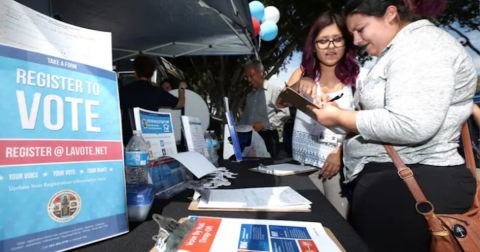A new nonpartisan primary and ranked choice voting initiative has qualified for the statewide ballot in Nevada. The proposal would make Nevada one of the earliest states to adopt RCV, but also seeks to implement the nation’s first top-five nonpartisan primary.
“The lack of inclusivity and representation in Nevada’s current election system emphasizes how outdated the process truly is, demonstrating the major need for change throughout the state,” said Nevada Voters First Coalition Director A’Esha Goins in a previous statement.
The effort is another example of how reformers are increasingly understanding how two reforms that were once at odds with each other can, in reality, be an ideal pairing to create inclusive elections that are fair and give voters more choice.
In a nonpartisan primary system, all voters and candidates participate on a single primary ballot. The top vote-getters (the number depending on the system in place) move on to the November general election.
It would eliminate the closed partisan primary system currently in place in Nevada that conditions full and meaningful participation in elections on joining a private political party.
Washington, California, and Alaska are the only three states that use nonpartisan primaries for all statewide, congressional, and US Senate elections. Alaska became the first state to expand upon the top-two system used in the first two states by adopting a top-four primary.
Alaska is also one of only two states that uses RCV at the state level. Maine became the first state to adopt its use in 2016.
Nevada could add to the historic momentum behind both reforms.
The ballot initiative process is a bit more cumbersome in Nevada than in some other states that allow it – particularly implementing a measure into law. The open primaries and RCV initiative will be on the ballot in November, but it will need to be approved by voters again in another election.
